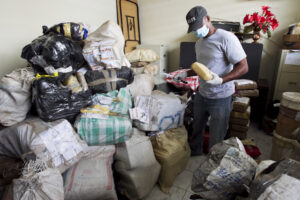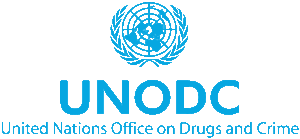Back to: Religion and National Value JSS 3
Welcome to class!
In today’s class, we’re going to be talking about International Cooperations against drug trafficking. I trust you will enjoy the class!
Introduction:
Drug trafficking is a global problem that transcends national borders, posing a significant threat to the health, safety, and well-being of individuals and communities worldwide. In Nigeria, the fight against drug trafficking is not only a matter of law enforcement but also a reflection of our religious and national values, which emphasize the importance of protecting human life, upholding justice, and promoting the well-being of society. This lesson explores the importance of international cooperation in combating drug trafficking and how it aligns with our values.
Understanding Drug Trafficking:

Drug trafficking refers to the illegal production, transportation, distribution, or sale of controlled substances, such as cocaine, heroin, methamphetamine, and cannabis. It is a complex and organized crime that involves transnational networks, often operating across multiple countries.
The Impact of Drug Trafficking:
Drug trafficking has devastating consequences on individuals, families, and communities:
- Health Risks: Drug abuse leads to addiction, health problems, and premature death.
- Crime and Violence: Drug trafficking fuels violence, corruption, and other criminal activities.
- Economic Costs: Drug trafficking drains resources from healthcare, law enforcement, and social services.
- Social Disruption: Drug abuse breaks down families, weakens communities, and undermines social cohesion.
Why International Cooperation is Essential:

Drug trafficking is a transnational crime that cannot be effectively addressed by any single country alone. International cooperation is essential for several reasons:
- Sharing Information: Countries can share intelligence and information about drug trafficking networks, routes, and methods, making it easier to identify and apprehend traffickers.
- Coordinating Law Enforcement Efforts: Joint operations and investigations can be conducted across borders, disrupting drug trafficking networks and bringing criminals to justice.
- Harmonizing Laws and Policies: Countries can work together to develop and implement common legal frameworks and policies to combat drug trafficking.
- Providing Mutual Legal Assistance: Countries can cooperate in legal matters, such as extradition and asset forfeiture, to ensure that drug traffickers are held accountable for their crimes.
- Capacity Building: Developed countries can provide technical assistance and training to less developed countries to strengthen their law enforcement and judicial systems.
Religious and National Values:
The fight against drug trafficking aligns with our religious and national values:
- Protection of Life: Many religions and traditional Nigerian values emphasize the sanctity of human life. Combating drug trafficking helps to protect lives from the devastating consequences of drug abuse.
- Upholding Justice: Drug trafficking is a crime that violates the rights of individuals and communities. International cooperation is essential to ensure that those who engage in this illicit trade are brought to justice.
- Promoting Well-being: Our religious and national values emphasize the importance of promoting the well-being of individuals and society. Combating drug trafficking helps to create a safer and healthier environment for all.
Examples of International Cooperation:

- United Nations Office on Drugs and Crime (UNODC): This UN agency coordinates international efforts to combat drug trafficking and organized crime.
- International Narcotics Control Board (INCB): This independent body monitors the implementation of international drug control treaties.
- Bilateral and Regional Agreements: Countries often enter into agreements to cooperate on drug control efforts.
Challenges to International Cooperation:
- Sovereignty Concerns: Some countries may be reluctant to cede control over their drug policies to international bodies.
- Lack of Resources: Many countries lack the resources and capacity to effectively combat drug trafficking.
- Political Will: Political will and commitment are essential for effective international cooperation.
Conclusion:
Drug trafficking is a global problem that requires a global solution. International cooperation is essential for effectively combating this menace and protecting the health, safety, and well-being of individuals and communities worldwide. By working together, countries can share information, coordinate law enforcement efforts, harmonize laws and policies, and build capacity. This collaborative approach aligns with our religious and national values, which emphasize the importance of protecting life, upholding justice, and promoting the well-being of society.
We have come to the end of today’s class. I hope you enjoyed the class!
In the next class, we shall be discussing Crimes and National Security
In case you require further assistance or have any questions, feel free to ask in the comment section below, and trust us to respond as soon as possible. Happy learning!
